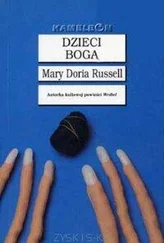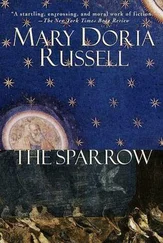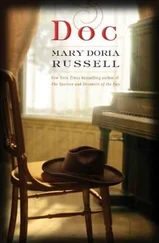Claudette Blum gathers one last burst of energy and sprints down a hotel hallway, schoolgirl socks bunched under her heels. “Papa!” she cries, flinging open the door. “General Eisenhower was on Radio London! Italy has surrendered!”
She waits, breathless, for a whoop of joy, for her father to embrace her— perhaps even to weep with happiness. “Thank God you’re back” is all he says. The room is dotted by small piles of clothing. Two valises lay open on two narrow beds. He lifts a pair of his own shoes. “See if these fit.”
Deflated, she takes the worn black oxfords. “Papa, you never listen to me! Italy surrendered!”
“I heard.” He picks up a shirt, puts it down again. “One to wear, one to wash. If those shoes are too big, put on extra socks— Wait! Go downstairs first. Borrow trousers from Duno.”
“Trousers from Duno? I wouldn’t ask him for the time of day! Why are you packing?”
“I blame myself! Your mother wouldn’t tolerate this arguing!” her father mutters, reducing socks and underwear to tiny bundles. “Do as you’re told, Claudette! We have three, maybe four hours!”
She flounces from the room with a sigh of pained tolerance for a parent’s unreasonable whims, but on her way back through the corridor Claudette grows uneasy. Family disputes in half a dozen languages filter through closed doors. Everyone seems angry or scared, and she cannot understand why, today of all days, when the news is so good.
“Believe nothing until it’s been officially denied,” her mother always said. “The only thing not censored is propaganda, and the British lie as much as the Germans.” All right, Claudette concedes, clumping down the stairwell. Maybe the BBC exaggerates Axis losses, but even Radio Berlin admitted that the Wehrmacht gave up ground in Africa and Russia. Mussolini really was deposed in July! The king of Italy replaced il Duce with Field Marshal Badoglio, the Fascist regime was abolished, and Badoglio let all political prisoners out of jail. The Italian soldiers said that was true! The Allies conquered Sicily last month and landed on mainland Italy just last week. Could that be propaganda?
Veering between confidence and fear, she settles for adolescent pique, which splits the difference, and knocks on the Brösslers’ door. No one answers, but she can hear Duno’s father yelling. “Herrmann Brössler’s lost everything but his voice,” her own father said the first time they listened to an argument in the room below. “He was a big macher in Austria. An impresario! Now he’s got nobody to boss but his family.”
Claudette knocks again, jumping back when Duno suddenly appears. “What do you want?”
Rising onto her toes, she peeks over his shoulder. Frau Brössler’s packing, and little Steffi’s stamping her feet. “You can’t make me!” she weeps, while her nine-year-old sister, Liesl, insists, “Mutti, we can’t leave Tzipi!”
Duno grabs Claudette’s arm and shoves her back into the hotel hallway. “Ow! Let go of me!” she cries. “Has everyone gone crazy? The war is over! Why is Steffi crying?”
Duno stares with the arid contempt only a fifteen-year-old can produce on such short notice. “Stupid girl. Don’t you understand anything?”
She hates Duno, hates his condescension, hates his horrible red pimples and his big ugly nose. “I don’t know what you’re talking about,” she says, rubbing her arm.
“When the Italians pull out of southern France, who do you think is going to march in?”
Her heart stops. She can feel it actually stop. “The Germans?”
“Yes, moron. The Germans.”
“We’ve got to get out of here,” she says, dazed. Duno rolls his eyes. “Where can we go now? There’s no place left!”
“We’re going east. We’ll follow the army into Italy.”
“Over the Alps? ”
“It’s the mountains, the sea, or the Germans,” Duno says, relishing her fear because it makes him feel commanding and superior. “It’s Italy or—” He makes a noise and draws a finger over his throat.
“Duno!” His mother pulls the door closed behind her. “What is it, Claudette?”
Claudette has seen a photo of Duno’s mother from before the war. Frau Brössler’s prosperous plumpness has gone to bone, but if she had any decent clothes now, she’d look like Wallis Simpson: willowy, well groomed. Claudette tucks her wayward blouse back into a skirt she outgrew last spring and decides to cut her bangs. “If you please, Frau Brössler, my father said to ask if I may borrow trousers from Duno.”
“Your father is a sensible man, Liebes. Come in. We’ll see what we can find.”
Head high, Claudette flounces through the door, shooting a look of triumph at Duno, who is forced by hard-taught courtesy to stand aside and let her pass, but she stops dead when she catches sight of his father’s face. “Liesl, we cannot carry a birdcage over the mountains,” Herr Brössler shouts. “No more than we can take your grandmother on such a climb!”
Duno picks up a china-faced doll and hands it to little Steffi. “We have to leave Tzipi behind,” he says, kneeling in front of her. “There’s plenty of food for canaries here. He’ll be very happy. Oma will be all right, too,” Duno says, eyes on his father. “The doctors and nurses are staying.”
“Thank you, Duno,” Frieda Brössler says quietly. “Stop arguing, girls. Bring only what you can carry with one hand!” She holds a pair of Duno’s trousers. “Take the woolen ones, Claudette. It will be chilly at high altitude.”
Albert Blum pushes tall shutters aside and leans from the window. In the street below, people are hurrying east on foot, but he himself closes his mind to fear and haste. Taking a seat at the little wooden desk, he smooths a single sheet of carefully hoarded stationery. Iron habit demands that his pencil stub be perfectly sharpened. He brushes wood shavings into the wastebasket, wipes the blade of his penknife with a handkerchief, replaces both in his pocket. When he begins at last to write, each letter is precise and regular.
“My beloved Paula, my brave David and darling Jacques,” he begins. “Claudette and I are leaving Sainte-Gisèle. I cannot know if this or any of my letters will reach you. I’ve spent days at bus stops and markets, asking everyone for word of you. I’ve contacted the Red Cross and the Jewish Council in every town, but nobody’s taken notice of a woman traveling with two small boys. In July, I enlisted the aid of a compassionate and resourceful carabiniere,” Albert writes, silently blessing Umberto Giovanetti. “He found your names on the manifest of an eastbound train last September, but could learn nothing of your present whereabouts. The Italians have done little to ingratiate themselves with the Vichy government, but this policy makes it difficult to obtain information from French authorities.”
Claudette bursts in, trousers slung over one arm, pale but calm. “I’ll change,” she says. “Give me five minutes.”
“Claudette is nearly grown,” her father writes, and turns the paper over. “She’s like a dolphin, Paula. The woman she will be surfaces now and then, before submerging again into childhood’s sea. We are moving on to Italy, where the war is over. Our carabiniere told us of DELASEM, an Italian Jewish organization that operates with government approval. They will find us a place to live, and I’ll register again with the Red Cross. There’s no more time, my dear ones. May the Lord bless you and keep you. May the Lord shine His countenance upon you. May the Lord give us all peace, and bring us together again! Your devoted husband and loving father, Albert.”
He folds the letter, seals it into an envelope, addresses it simply Paula Bomberghen Blum. Shrugging into a baggy suit coat, he turns toward his daughter. His jaw drops. “What on earth have you done to your hair?”
Читать дальше












